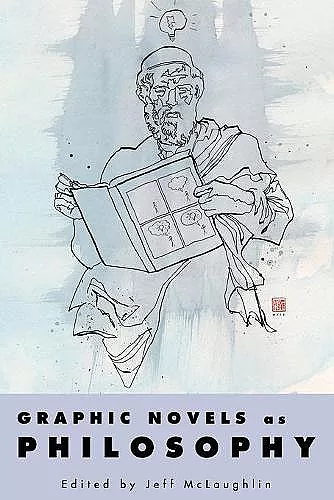Graphic Novels as Philosophy
Format:Paperback
Publisher:University Press of Mississippi
Published:30th Dec '19
Should be back in stock very soon

Contributions by Eric Bain-Selbo, Jeremy Barris, Maria Botero, Manuel "Mandel" Cabrera Jr., David J. Leichter, Ian MacRae, Jeff McLaughlin, Alfonso Muñoz-Corcuera, Corry Shores, and Jarkko Tuusvuori
In a follow-up to Comics as Philosophy, international Contributors address two questions: Which philosophical insights, concepts, and tools can shed light on the graphic novel? And how can the graphic novel cast light on the concerns of philosophy? Each Contributor ponders a well-known graphic novel to illuminate ways in which philosophy can untangle particular combinations of image and written word for deeper understanding.
Jeff McLaughlin collects a range of essays to examine notable graphic novels within the framework posited by these two questions. One essay discusses how a philosopher discovered that the panels in Jeff Lemire’s Essex County do not just replicate a philosophical argument, but they actually give evidence to an argument that could not have existed otherwise. Another essay reveals how Chris Ware’s manipulation of the medium demonstrates an important sense of time and experience. Still another describes why Maus tends to be more profound than later works that address the Holocaust because of, not in spite of, the fact that the characters are cartoon animals rather than human.
Other works contemplated include Will Eisner’s A Contract with God, Alan Moore and David Lloyd’s V for Vendetta, Alison Bechdel’s Fun Home, and Joe Sacco’s Footnotes in Gaza. Mainly, each essay, Contributor, graphic novelist, and artist is doing the same thing: trying to tell us how the world is—at least from their point of view.
ISBN: 9781496825629
Dimensions: unknown
Weight: 325g
226 pages